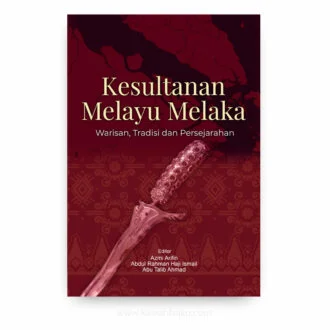The Memoirs and Memorials of Jacques de Coutre: Security, Trade and Society in 16th- and 17th-century Southeast Asia provides a valuable first-hand account of the issues confronting the early colonial powers in Southeast Asia, and deep insights into the societies De Coutre encountered in the territory that today makes up Singapore, Malaysia, Thailand, Cambodia and the Philippines. The book is lavishly illustrated with 62 maps and drawings of the period, including many examples not previously published.
Jacques de Coutre was a Flemish gem trader who spent nearly a decade in Southeast Asia at the turn of the 17th century. He left history a substantial autobiography written in Spanish and preserved in the National Library of Spain in Madrid. Written in the form of a picaresque tale, with an acute eye for the cultures he encountered, the memoirs tell the story of his adventures in the trading centres of the day: Melaka, Ayutthaya, Cambodia, Patani, Pahang, Johor, Brunei and Manila. Narrowly escaping death several times, De Coutre was inevitably drawn into dangerous intrigues between the representatives of European power, myriad fortune hunters and schemers, and the rulers and courtiers in the palaces of Pahang, Patani, Siam and Johor.
In addition to his autobiography, De Coutre wrote a series of memorials to the crowns of Spain and Portugal that contain recommendations designed to remedy the decline in the fortunes of the Iberian powers in Southeast Asia, particularly against the backdrop of early Dutch political and commercial penetration into the region.
This is another book written and edited by the prolific scholar Peter Borschberg which allows insight into new historical information and interpretations of the early modern period in the Malay world for scholars, historians, and students. The early modern period was a dynamic one in Malay history, where important events shaped Southeast Asia. With this volume, Peter Borschberg has opened a door for many young researchers and more established historians to understand this history through the eyes of a contemporary observer: Jacobus van de Koutere, alias Jacques de Coutre (and later also Jaques do Couto), a native of Bruges.
De Coutre was an independent trader, dealing chiefly in precious stones, bezoars, and Indian textiles. He lived and traded for more than three decades in the port towns of Asia and Southeast Asia, especially Melaka where he was based between 1594 and 1603. His autobiography and memoirs written for the Spanish crown and the Portuguese viceroy in Goa, translated by Roopanjali Roy, have been made available in English for the first time. These documents recount De Coutre’s personal life alongside reports and accounts of Southeast Asia and his experiences of living in the Malay world. They include accounts of contemporary Melaka, and other Malay kingdoms of the peninsula and Melaka Strait, and the vast web of trading relations maintained by Portugal and Spain from the east coast of Africa to Japan.
According to Borschberg, De Coutre was clearly interested in far more than trade and commerce, and his writings provide an astonishingly detailed overview of the peoples, cultures, and regions he came into personal contact with, thus yielding rare glimpses into a pre-colonial Asian world that has long been eclipsed by imperialism and industrialisation.
De Coutre’s accounts allow insight into an incredible period of transition which included the disintegration of the Melaka empire, the establishment of the Johor kingdom, and the rise of Portuguese power in the Straits. One of the most interesting pieces of information pertains to the Portuguese colonisation of the Straits before the Dutch East India Company. The period from the 1520s to the 1600s in the Straits is always considered an era of conflict, war, and plunder among the kingdoms of Aceh, Portuguese Melaka, and the Johor Malays.
Nevertheless, De Coutre’s memoirs show how trade still flourished, especially between Portuguese Melaka and the Johor kingdom. These documents also reveal valuable information on contemporary weapons, money, precious stones, local kingdoms, orang laut, and most importantly, an account of the port of Singapore, which is mentioned as one of the best in the East, a thriving port rather than the ‘backwater’ it was misleadingly described as later by Stamford Raffles.











Reviews
There are no reviews yet